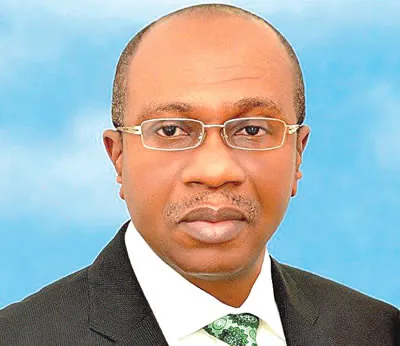

Godwin Emefiele, CBN governor
Due to increased competition from non-traditional banking competitors such as Financial Technology (FinTech), increased specialization to serve specific customer s’ needs with speed, reduced need for face-to-face interactions between bank customers and the banks as well as availability of digital currencies like Blockchain, Ripple, Ethereum, the future of banking is uncertain.
The President, Chartered Institute of Bankers of Nigeria (CIBN), Mr Olusegun Ajibola made this revelation at the just concluded World Conference of Banking Institutes (WCBI), which Nigeria hosted for the first time, courtesy of the CIBN.
According to him, as technology is disrupting the nature of work at an unprecedented rate, there is the need for a new and inclusive approach to learning on the job. He added that while several researches has alluded to the positive correlation between income levels and educational attainment, it has been realiSed recently that, a college degree at the start of a working career does not answer the need for the continuous acquisition of new skills, especially as career spans are lengthening.
“Although the future of banking remains speculative, there are clear indications and a general consensus that a number of factors would continue to disrupt some already established banking models,” he said.
For instance he noted, a 2015 survey conducted by Bank Innovation, a report which benefitted from the responses of key stakeholders in the banking industry across continents, identified 13 critical developments that would shape banking by 2020.
Some of these include, increased competition from non-traditional competitors such as FinTech, “more fragmented” banking with incumbents losing more and more pieces as consumers build their own suite of products from a multitude of providers; increased specialisation to serve specific customer needs with speed and adequate value for money; banks would still remain the trusted advisors and there would still be need, albeit reduced significantly, for face-to-face interactions between bank customers and the banks; digital systems like Blockchain, Ripple, Ethereum will be common place among others.
The CIBN president stated that the foregoing stresses the importance of stakeholders in the banking and finance sector coming together to develop new strategies that would not only meet the present demands for financial products and services but would also look into the future and prepare for the technological and demographic disruptions that are bound to redefine banking and the skills required of bankers within the next few years.
“This also calls for a revisit of the different curricula at our tertiary institutions on the teaching of banking and finance and other allied courses. These essentially encapsulate the primary objectives of this 4-day Conference that would feature top professionals from different parts of the world as discussants on the carefully selected sub-themes of the conference,” he stated.
According to Ajibola, more than 750 delegates from over 30 countries across the world namely: U. S.A, Germany, Australia, South Korea, Brazil, Italy, Kenya, Gambia, Togo, Mali, Kuwait, Mongolia, Ghana and South Africa among others are participating at the WCBI, taking place from April 24 to April 28 in Lagos.
In its 42nd year since it debuted in Scotland, United Kingdom in 1975,
He expressed gratitude to the Central Bank of Nigeria and other sponsors of the conference especially, Lagos State Government for providing adequate security and adopting the conference as part of activities marking the state’s 50th anniversary.
Speaking in Lagos last week at the conference themed: ‘’Rethinking the future of Banking and Finance and Life Long Learning,’’ Vice President Yemi Osinbajo urged the banking sector to support the country’s Economic Recovery Growth Plan (ERGP) to enable it achieve 7 per cent annual growth forecast by 2020.
The Vice President, represented by Adeyemi Dipeolu, Special Adviser to the VP on Economic Matters commended the industry for supporting national development in many ways, stressing that the industry must overcome funding challenges for the government to achieve its aims.
Osinbajo said the industry must also support Small and Medium Enterprises (SMEs) to achieve inclusive growth.
“The banking industry has been able to provide job opportunities to many Nigerians, among others.We expect the sector to support our EGRP to enable it achieve sustainable and inclusive growth of core 7 per cent annual growth by 2020,” he stated.
Mr. Adjiedj Bakas, a distinguished thought leader and author of the Future of Banking in his presentation, advised banks to embrace technology, use the ideas of young people, start financial education, recognize the grassroots in their financial inclusion drive and never be afraid to try something new, if they must survive the future challenges that technology will bring into banking.
The onset of menstruation, often referred to as menarche, is culturally significant and frequently marks…
The Defence Headquarters (DHQ) on Friday confirmed the arrest of a Chinese national and five…
A thirty-three year old man, Ibrahim Shaibu of Damboa Area, Potiskum, Yobe State, has been…
“Our campaign will focus on the unprecedented achievements of the outgoing governments, timely social interventions,…
A Senior Advocate of Nigeria (SAN), Chief Adeniyi Akintola, in this interview by SAM NWAOKO…
The Governor acknowledged the critical role Corps members play in service delivery across the state’s…
This website uses cookies.